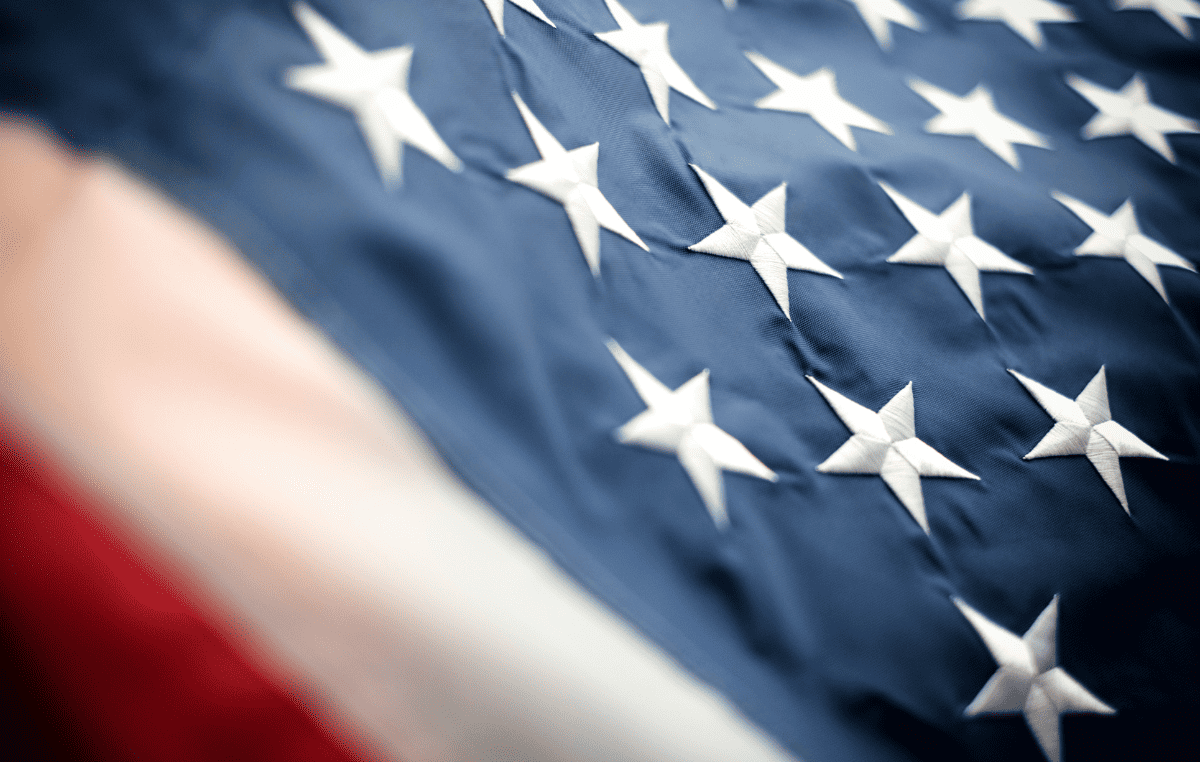Recently I visited a third-grade classroom and watched the students recite, “I pledge allegiance to the flag of the United States of America and to the republic for which it stands, one nation, under God, indivisible with liberty and justice for all.”
Do they know the history of this pledge or this country? I wondered. Do I?
When I returned home, I learned that an early version of the Pledge of Allegiance was penned in 1885 by Captain George T. Balch, a Union Army officer who had fought to preserve this nation during the Civil War. In 1892, Francis Bellamy revised Balch’s verse for the 400th anniversary of Christopher Columbus’s arrival in the Americas. Then, when America entered World War II, Congress formally adopted the pledge. At President Eisenhower’s urging, the phrase ‘under God’ was added in 1954. He also made ‘In God We Trust’ our nation’s official motto and mandated that the phrase be printed on our currency – a visible sign of a nation’s commitment to its past, future, and Creator.
But when did the words “one nation, under God” and “In God We Trust” lose meaning for Americans?
Late-night talk shows interview Americans on the street, and audiences laugh at the blank stares when people are asked simple questions about American history and culture. But really, their responses are horrifying!
For four centuries, people from all over the globe have been drawn to America because it represents the freedoms that our faith and trust in Christ can provide. The Pilgrims arrived with the express intention of creating a “City on the Hill,” a shining example of a brand new, Bible-based godly model for the world, as envisioned in Matthew 5:14, ESV, when Jesus told followers, “You are the light of the world. A city that is set on a hill cannot be hidden.” Jesus wanted His followers, people of His kingdom, then and now, to live lives that visibly display God at work in their lives.
We Christians place our trust in God and abide in Him. But we are called to do more during these times of social upheaval and deepening political divisions. We must love our neighbors – all our neighbors – those we agree with and those we don’t. The Apostle Paul outlined our responsibilities in Galatians 5:22-23, NIV, explaining that the ‘fruit of the Spirit’ is the “love, joy, peace, patience, kindness, goodness, faithfulness, gentleness, and self-control” we show to others.
So, what do we do when our faith and culture collide?
First, we must recognize that our nation is comprised of people with beliefs, interests, and backgrounds as numerous as the stars in the sky. People who have souls and need Jesus. We all need Jesus. And Christ’s followers are expected to live and love as He did, to cast aside our prejudices, remembering Christ once asked, “Why worry about a speck in your friend’s eye when you have a log in your own eye?” (Matthew 7:3-5, NLT) We need to focus on our many similarities rather than our few differences. We must walk the proverbial mile in others’ shoes, trying to understand life from their perspective. We have to listen with our hearts, understand, and help.
By recommitting to the higher ideals of patriotism, virtue, and education, we offer a path back to that City on the Hill generations of Americans have lived and died for. Living boldly in our faith, we can show Christ’s love, forgiveness, and grace – acknowledging that we are all sinners.
Remembering what God has given us makes embracing the words “liberty” and “justice” for all much easier.
President Ronald Reagan once observed, “If we ever forget that we are One Nation Under God, then we will be a nation gone under.” The United States of America will be a lost nation without Christ. We are His ambassadors on earth.
*This post was printed in the July 2023 edition of The Outreacher Christian newspaper.

0 Comments